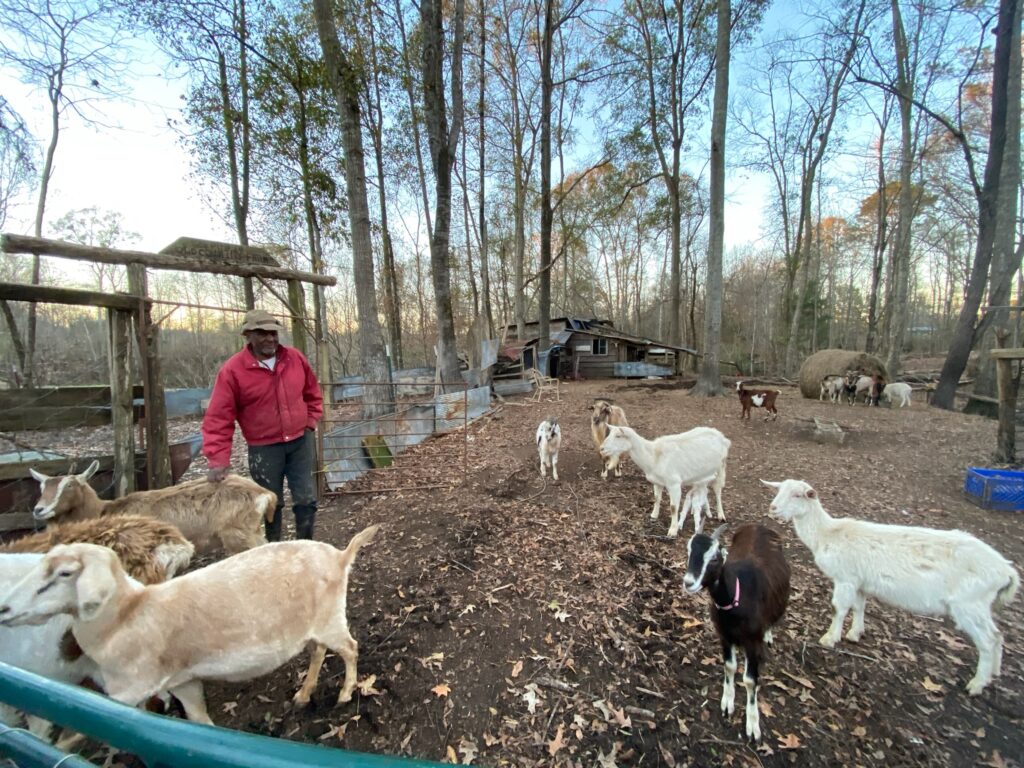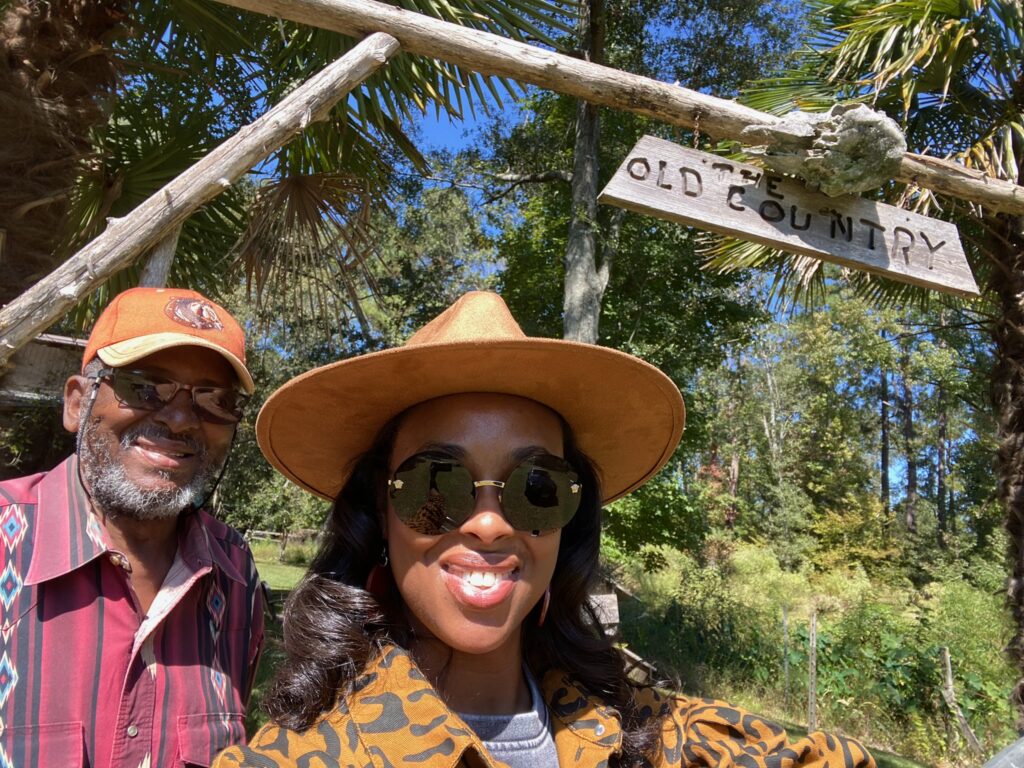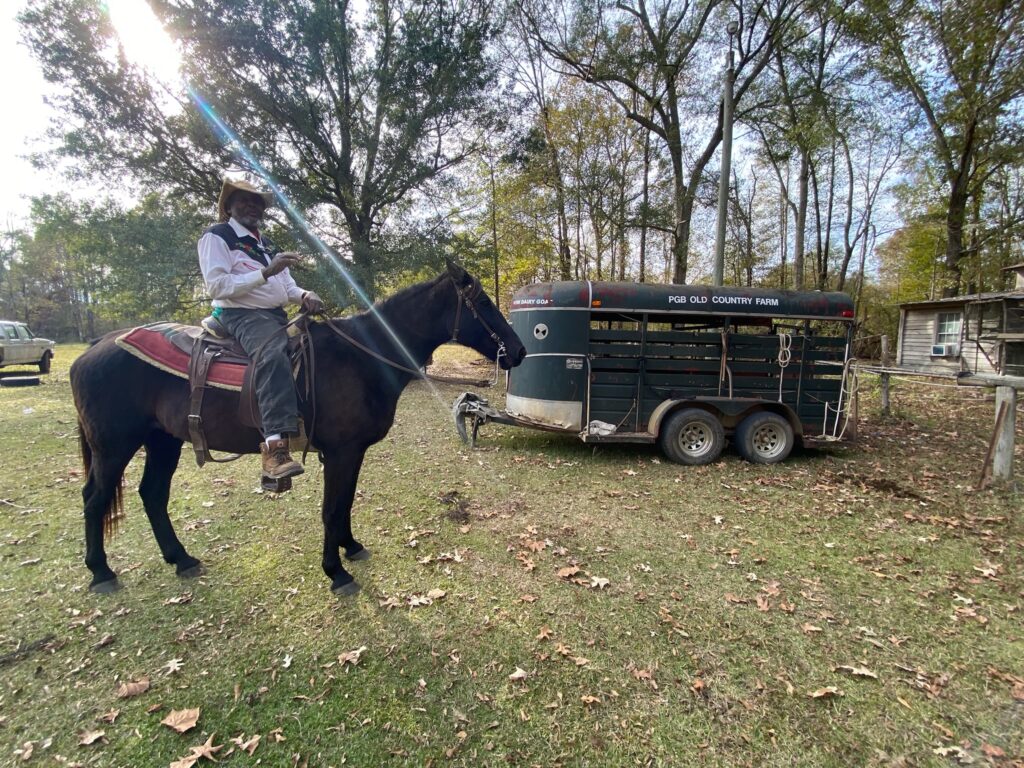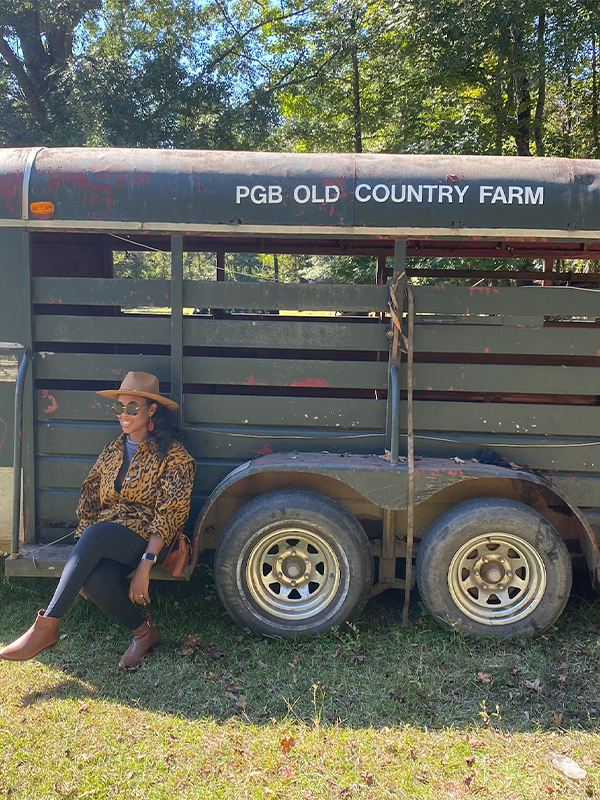Land ownership has been a symbol of wealth for years, particularly for Black Americans. One of the biggest metrics of success meant having land to build a home, toiling the soil to nourish family and livestock, and, in turn, making a living.
Systemic barriers have tainted that reality. Black farmers comprise just 1.4% of the U.S. farming population, and a few can say that their land has been in their family for generations. Brittany Bell Surratt is now one of those few.
In the 1940s, Bell Surratt’s grandfather, Clarence Bell, acquired land in Fayette, located in Jefferson County, Mississippi. Clarence’s 12 children, including Bell Surratt’s father, help maintain the land to this day. In the 1980s, when nearby land became available, her father, Henry “Jodi” Bell, bought that, too. He farmed his land while working as a school teacher until he retired. He’s been a full-time farmer for over 25 years and even built his home on that land. Together, the Bells now have more than 50 acres of land in their family.
Bell Surratt, a senior director in communications, who resides in Washington, D.C., remembers spending time with her father on his farm during the weekends as a child. She also participated in horse showing and enjoyed riding her horses in parades. The Bell farm also had cows, chickens, peacocks, doves, deer, turkeys, hogs and a dog. “It was like, Old McDonald,” Bell Surratt tells Sweet July. “One of the best feelings, I’ll say, was going to the farm and being greeted by so many animals. It was so much life on the farm.”

But that abundance of life on the Bell farm ended when the Southeast region of the United States was hit with a winter freeze in 2021. In the rural town of Harriston, where there’s barely Internet service, her father relies predominantly on mail to get his information. He was unprepared for the snow and ice that came Mississippi’s way. “My father was without water access for a few weeks and without heat,” says Bell Surratt. “During that time, the majority of that livestock and those animals died.”
Her father, who was 74 at the time, had lost his entire livelihood in one storm. He has been a member of the local U.S. Department of Agriculture farm agency, and when he went to them to find relief, there were challenges. “There are a couple of things that are working against him: One, he’s a Black farmer, and two, he’s now elderly,” says Bell Surratt.
That’s when Bell Surratt decided to step in and help her father rebuild the family’s farm. That entailed becoming two things: a farmer and a landowner. She spent about a year and six months traveling back and forth from D.C. to Mississippi to make the transition happen. Her dad taught her about cow breeds and their cost and worth. From him, she learned about the costs of feeding the animals, medication and pregnancy cycles of the animals.
Once the deed to the land was placed in her name, she spent time with the USDA office to learn about programs, soil and land conservation projects, information on livestock and produce and cooperative extensions. “A lot of things in the South are relationship-driven,” says Bell Surratt. “I didn’t want to be just the person on the phone or in the email. They needed to know that my dad is not alone in this.”

She also needed to learn how to prioritize her other relationships, splitting her time between her work as a publicist, her work at the farm, and her time with her husband and high school-aged son. She spends four to six weeks at the farm while working remotely in her full-time job.
Now that she is a farmer, Bell Surratt has been able to help revive the farm by investing her money to purchase horses, goats and cows. This investment will help generate revenue for the farm by breeding the livestock and selling them. Bell Surratt and her father also grow tomatoes, greens and peas to sell.
“Getting the farm back to its pre-storm glory will be hard,” says Bell Surratt. “It’s financially tough, and my dad is only getting older.” The farm, she says, is what’s kept her “vibrant, fun, comical and high-energy” father active every day. She’s committed to restoring the farm for his sake and for her family’s sake.

Stepping in as owner has felt like a calling for Bell Surratt. In the process, she joined the National Black Farmers Association that advocates on behalf of Black farmers nationwide. She also became an active member of online communities like Black Farmers and Agriculturalists Association, Mid-Atlantic Black Farmers, Farming While Black and the Black Female Farmers Network. These groups discuss mobilizing around policy and legislation to get economic justice for Black farmers. Her mission became bigger than just restoring her dad’s farm.
“As Black people, we gotta keep our land,” says Bell Surratt. “Black farmers have had so much stolen and swindled from them, so part of my cause is to get some type of justice.”







